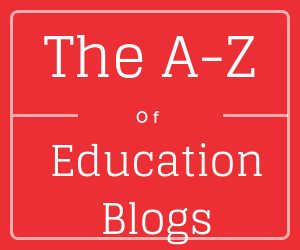Pass or Fail: How Can Interventions Reform Retention Rates?

In this multi-part series, I provide a dissection of the phenomenon of retention and social promotion. Also, I describe the many different methods that would improve student instruction in classrooms and eliminate the need for retention and social promotion if combined effectively.
While reading this series, periodically ask yourself this question: Why are educators, parents and the American public complicit in a practice that does demonstrable harm to children and the competitive future of the country?
What, if anything, can be done to address the high rate of retention at schools with a significant number of at risk students? Will additional resources, after school programming and increased parental support change retention rates?
Schools with higher populations of students at risk for retention will likely have higher retention rates. In 2010, the Spencer School in Chicago, retained one-third of the third-grade class. The number of third-grade classrooms also increased during the subsequent school year, with each classroom containing twenty-eight students. While the school principal and staff were committed to addressing the problem of a large number of retained students, their strategies needed to work within the context of existing structures and resources.
Volunteers came in to help retained students, as well as those students who displayed low achievement when entering third grade as new students. A school enrichment teacher also worked with students who were reading above grade level, so that teachers could concentrate on students working at or below grade level. Low-achieving students could receive additional help at an after school program, although attendance was voluntary and tended to be low.
Educators at Spencer made attempts to get parents more involved, and they appeared to meet with some success in this. After all, it’s true that parents are quite motivated to intervene and assist their children when possible, especially when there is guidance from teachers and other educators. Considering the rate of third-grade retention alone, however, there appeared to be insufficient parental involvement: approximately 40 parents, out of 116 third graders, came to an information session designed to let parents know what they could do to support their child’s education success.
Students and faculty at schools with high numbers of retained students experience significant stress and strain outside of the normal range associated with school experiences and testing. So much more is on the line when retention is the norm, instead of an exception. Preparation periods for tests to determine promotion are particularly stressful and supports for students and teachers are often lacking.
The pressure experienced by traditional schools because of high retention rates does not necessarily exist at charter schools, where retention rates tend to be higher. Charter schools report retention rates of 23 percent, compared to 1–4 percent retention rates in urban centers like New York and Houston. A 2008–09 retention report from thirty-one charter schools in New York City indicated that 16 percent of sixth graders were retained.
This compared to 1 percent of seventh and eighth graders in the city as a whole (city sixth graders were not included in the comparison since the sixth-grade retention policy did not begin until the following year). The Knowledge as Power Program (KIPP), which is a network of charter schools throughout the nation, also has a retention rate higher than traditional public schools. The organization proclaims that its retention rate is a result of strict policies – unbending rules about holding students to a higher standard of performance than traditional public schools.
Charter schools, however, do not necessarily alleviate the high retention rate, though. In fact, the elevated numbers of students repeating a grade level may be symptoms of a rigorous academic program and high expectations set for students. Leaders insinuate that retention at charter schools is different from retention at traditional public schools, and deny that retention has a negative impact on students in the charter school context. They also suggest that retention is such a common practice at charters that students do not necessarily feel stigmatized.
While high retention rates may be the result of strict adherence to requirements for mastery, a parallel outcome is that charters such as KIPP can report high college attendance rates. Some low-performing children weed themselves out by returning to traditional schools once they become aware of their retention. Charter schools also exclude these retained children from their graduation rates. On the other hand, some low-performing children do better as they repeat a grade. Occasionally, however, there is an indication that the improved achievement is short-lived.
Various researchers have concluded that retention is not the solution for social promotion. Retention and social promotion policies are less about learning, overall, and more about maintaining the structure of schooling as it exists today. Some retention policies come with interventions that are meant to support education policy and not necessarily a high level of student learning.
Do charter schools have the right idea in their approach to retention? What could public schools learn from the way charter schools view and endorse retention?






